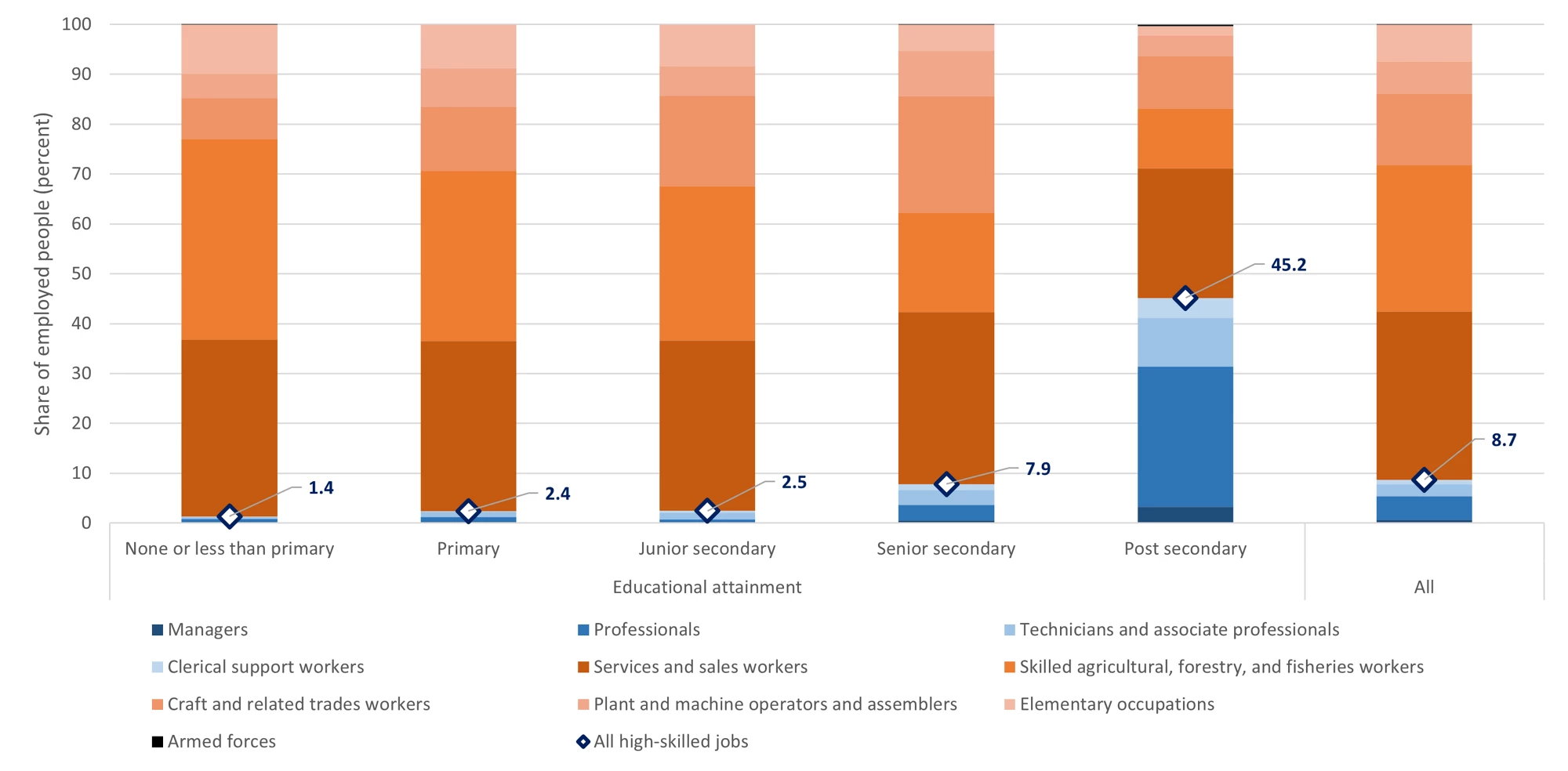 Mobile water testing laboratory is a modern and innovative way of bringing water quality testing closer to rural communities. Photo: Water Supply and Sanitation Improvement Project
Mobile water testing laboratory is a modern and innovative way of bringing water quality testing closer to rural communities. Photo: Water Supply and Sanitation Improvement Project
Is your water safe to drink? Most people who depend on point sources such as dug wells, springs, or even community taps for their drinking water needs cannot tell you confidently if the water they drink is safe . Mrs. Somawathi, from the rural village of Sooriyara in Monaragala district, Sri Lanka, walks 3 kilometers daily to fetch water for cooking and drinking. She does not know if the water she brings home is safe to drink and what it can cause to her health. Like Somawathi, villagers in rural Sri Lanka depend on dug wells, community taps, streams, lakes, or springs to fulfill their day-to-day water needs. Many of these sources are polluted.
Traditionally, Governments pay more attention to overcoming challenges of water shortages in rural settings, and water quality issues remain largely unattended. Lack of public awareness on the importance of quality water and lack of testing facilities remains a challenge. Water quality testing laboratories are required to regularly monitor and assess microbial, chemical, and physical parameters in drinking water. However, access to such laboratories and the human resources to conduct water quality surveillance remains limited in many countries, especially in remote areas. As a result, rural communities are often unable to systematically verify the most basic water quality parameters, contributing to the high incidence of waterborne diseases.
In Sri Lanka, a World Bank-funded Water Supply and Sanitation Improvement Project (WaSSIP) is making a difference by decentralizing water quality testing facilities and taking it to the community level. In addition, the project addresses the poor quality of drinking water with treatment plants and enables Community-Based Organizations (CBOs) to carry out regular water quality testing.
WaSSIP has taken several steps to bring water quality testing facilities closer to the community through various interventions . For instance, the project has equipped 27 laboratories at water treatment plants, provided two mobile laboratories, supplied 200 water quality testing kits to CBOs, and trained local lab technicians to test basic quality parameters such as PH, turbidity, and residual chlorine. The project has also developed guidelines and handbooks on water quality testing procedures and operation of the laboratory and implemented a community awareness program on the safe handling of water storage.
In Sri Lanka, a World Bank-funded Water Supply and Sanitation Improvement Project (WaSSIP) is making a difference by decentralizing water quality testing facilities and taking it to the community level.
The mobile labs have been instrumental in ensuring testing facilities in remote rural areas where centralized testing would not be possible due to long travel distances. Mobile labs can quickly generate test results, which helps individuals and CBOs take immediate corrective actions for water samples that do not meet the drinking water quality standards. So far, the mobile labs have facilitated water testing at over 1,200 out of 4260 CBOs managing water systems in rural Sri Lanka. In addition, the integration of water quality testing facilities, especially mobile labs, has enabled easy access and enhanced the local capacity for accurate and affordability testing procedures. These interventions have proven valuable to the communities to deliver safe drinking water to their beneficiaries. Somawathi and her community can quickly test their water samples in their village and enjoy safe drinking water.
Mobile labs can quickly generate test results, which helps individuals and CBOs take immediate corrective actions for water samples that do not meet the drinking water quality standards.
This experience in rural Sri Lanka shows that it is possible to demystify water quality by decentralizing testing at the community level so people benefiting from government-funded water access expansion projects can have confidence in the safety of water provided.





Join the Conversation